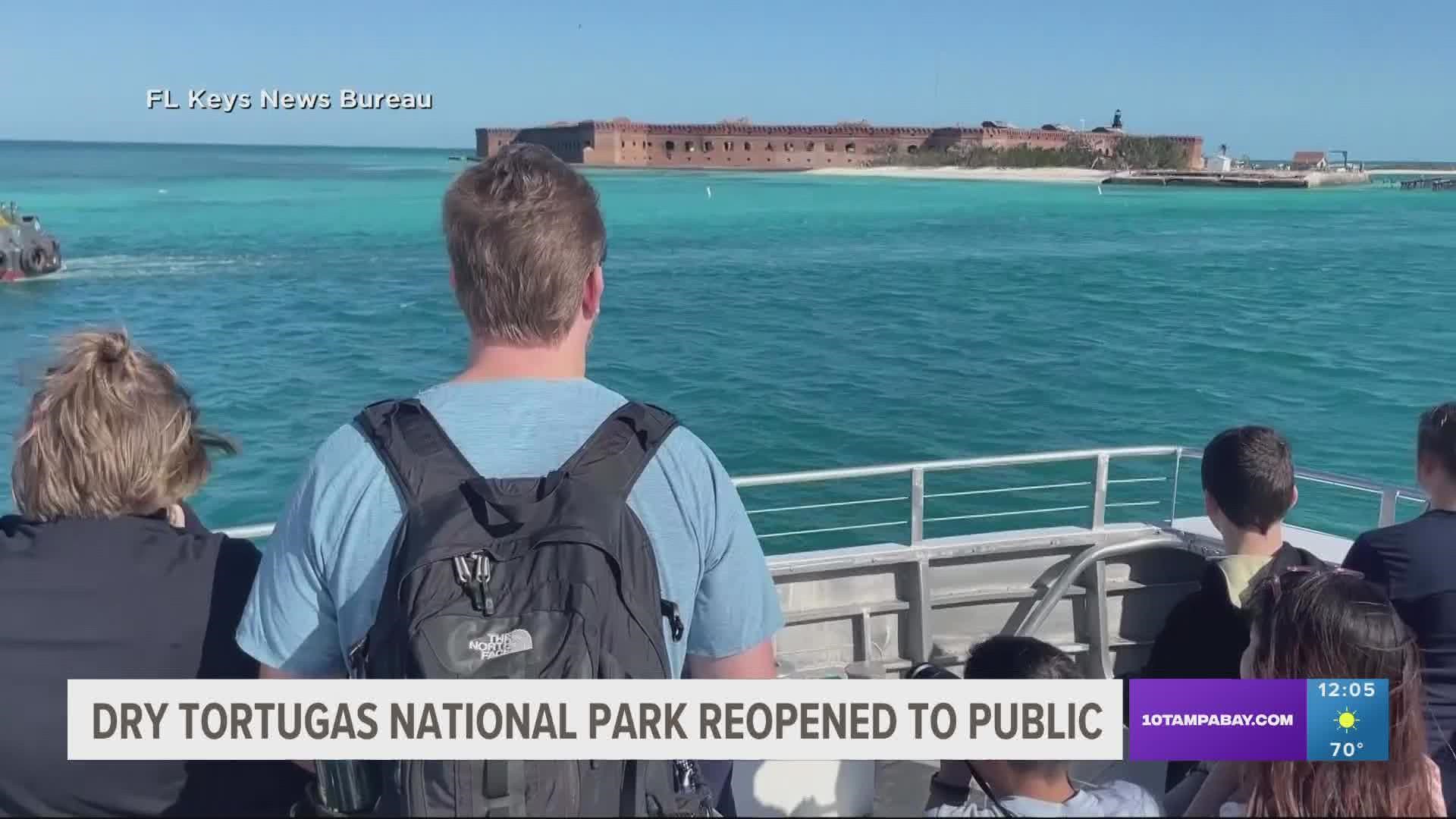KEY WEST, Fla. — A national park in the Florida Keys is back open after temporarily closing due to the arrival of hundreds of migrants.
Dry Tortugas National Park closed on Jan. 2 after more than 300 Cuban migrants arrived over the New Year's weekend, according to park officials. It reopened on the morning of Jan. 8.
The park wrote that the closure was "necessary for the safety of visitors and staff because of the resources and space needed to attend to the migrants."
First responders provided food, water and basic medical attention to the 337 people on the remote island until the Department of Homeland Security arrived to take them on the 70-mile trip to Key West, where they were set to be processed.
The group was among more than 700 migrants, mostly Cubans, who arrived in Florida by boat over the New Year's weekend. Gov. Ron DeSantis said it was this "alarming influx of migrants" that led him to activate the Florida National Guard on Friday.
DeSantis' executive order came a day after the Biden administration signaled a tougher stance on migrants coming from Cuba, Haiti, Nicaragua and Venezuela, while offering a new path for migrants from those countries to enter legally.
The government said it would immediately start turning away Cubans, Haitians and Nicaraguans who cross the U.S.-Mexico border illegally, as it has done with Venezuelans. At the same time, it would accept 30,000 people per month from those four nations who arrive legally, have eligible sponsors and pass background checks. It was not immediately clear what impact this would have on migrants who arrive in Florida.
U.S. Border Patrol and Coast Guard crews patrolling South Florida and the Keys have been experiencing the largest escalation of migrations by boat in nearly a decade, with hundreds of interceptions in recent months. Economic turmoil, food shortages and soaring inflation in Cuba and other parts of the Caribbean are spurring the most recent wave of migration.
The Associated Press contributed to this report.

